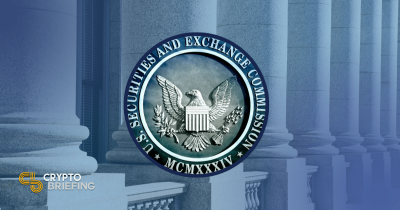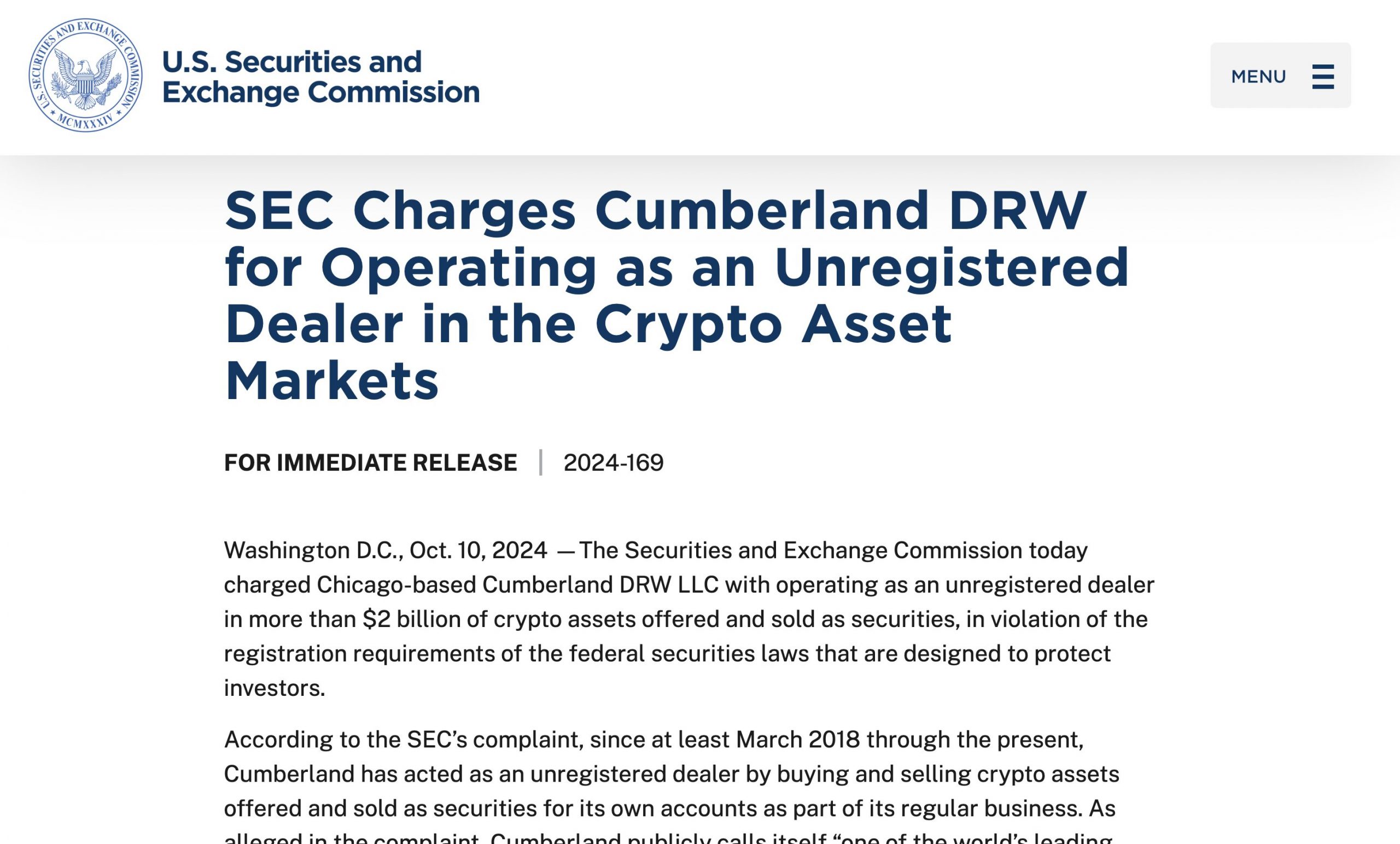SEC seeks legal remedies against Cumberland for unregistered crypto transactions.

Key Takeaways
- Cumberland DRW allegedly operated without SEC registration in crypto transactions worth over $2 billion.
- The SEC's lawsuit could lead to penalties, including disgorgement and civil penalties.
The SEC has filed charges against Chicago-based Cumberland DRW, alleging the company operated as an unregistered dealer in crypto assets that were offered and sold as securities.
The SEC claims Cumberland was involved in more than $2 billion in transactions, in violation of federal securities laws intended to protect investors.

According to the SEC’s complaint, Cumberland has been functioning as an unregistered dealer since at least March 2018. The company allegedly bought and sold crypto assets, considered securities, as part of its regular business.
The SEC’s Acting Chief of the Crypto Assets and Cyber Unit, Jorge G. Tenreiro, emphasized that all securities dealers, including those involved in crypto assets, must register with the Commission.
The SEC seeks several legal remedies, including a permanent injunction to prevent further violations, disgorgement of profits, prejudgment interest, and civil penalties.
The SEC’s case against Cumberland is part of a larger regulatory effort to enforce compliance in the cryptocurrency industry. The SEC has been increasingly active in targeting unregistered activities related to crypto assets.
In June 2023, the SEC charged Coinbase with operating its trading platform as an unregistered national securities exchange, broker, and clearing agency. The Commission also accused Coinbase of failing to register the offer and sale of its crypto asset staking program.
Earlier in January 2023, the SEC pursued legal action against Genesis Global Capital and Gemini Trust Company, alleging their Gemini Earn crypto lending program was an unregistered securities offering.
These actions reflect the SEC’s ongoing focus on regulating the crypto industry, ensuring that firms involved in digital asset transactions comply with federal securities laws.
Disclaimer
 3 weeks ago
16
3 weeks ago
16








:quality(85):upscale()/2024/08/06/667/n/1922794/4bc1ce8866b23aaf319c84.46755244_.png)

 English (US) ·
English (US) ·